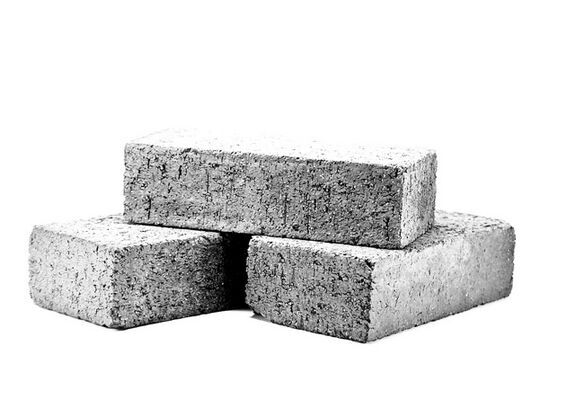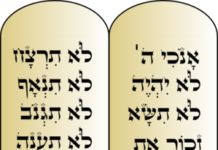In this week’s Torah portion, Pikudei, we conclude the process of building the Mishkan, (Tabernacle). When Bnei Yisroel completed this task, they approached Moshe with their predicament. Due to the Mishkan’s weight, it was physically impossible to lift it. Rashi tells us that Hashem had purposely left Moshe out of the entire building process until this point for He wanted this next step, the placement of the Mishkan, to be done by Moshe. After listening to the Bnei Yisroel’s dilemma, Moshe asks Hashem how the Mishkan can be erected for it is too heavy for man to maneuver. Hashem tells him to just try and lift it. Moshe follows Hashem’s instructions. A miracle happens, and it appears as if Moshe literally lifts the Mishkan up by himself.
Therefore, what was the point of having Bnei Yisroel ask Moshe for help if a miracle was necessary to complete the process anyway? Why couldn’t they just directly ask Hashem to perform the miracle?
The story of the building and placing of the Mishkan illustrates a timeless lesson for all of us. Hashem wanted the Bnei Yisroel to recognize the role that Moshe played daily in their lives. He was their emissary and had pleaded on their behalf so many times. This Mishkan was a result of Hashem answering Moshe’s prayers and forgiving the Jewish people. Hashem wanted them to realize that the only reason they reached this point was due to Moshe. Hakoras hatov (gratitude) is the true foundation of building any home, let alone the Mishkan, the home of Hashem.
In life, we have many people for which to be thankful. We need to stop and reflect, to pay attention and to give thanks to those that have paved the way for us. Often, we can recognize it on our own as it is happening. However, sometimes it takes us much longer to reach that conclusion or we find out years later the role that someone had played in shaping our lives. Whatever the timing might be, it is important to step back and recognize that person, whether it be a parent, rebbe, morah, teacher or friend. That gratitude is the foundation of everything in Judaism as Hashem clearly demonstrates to Bnei Yisroel that His presence will only come if their gratitude is shown.
To take this point one step further I would like to share the following story that I witnessed over 25 years ago from the famed Mashgiach of Lakewood, Rav Nosson Wactfogel, zt”l. On a cold rainy Shabbos day in the middle of the winter, a friend of mine was celebrating the birth of a baby girl with a Kiddush in his home. Although, I lived less than two blocks from him, I was debating if I should go since the torrential rain and fierce winds made it a perfect day to stay indoors. All the excuses popped into my mind – Of course, he will understand. The weather is horrible. Does he really need me to be there?
After going back and forth, I decided to go. Due to the inclement weather, I thought that there would probably not be such a big crowd and he would appreciate my presence. As I expected, when I arrived, there were only a few people there.
After a few minutes of singing, the door opened. The Mashgiach Reb Nosson, zt”l, walked in. He was drenched from head to toe. Immediately, someone took his coat and sat him down with a cup of hot tea. We were all wondering why had he come. Reb Nosson, zt”l, lived seven blocks away. He was in his 80’s and it was not an easy or short walk for him. It must have taken him at least 20 to 30 minutes.
As with every story, there is one person who has the guts to ask the question that everyone is thinking, “Rebbe, why did you come out on a day like today?”
I was sitting right across from him as he answered the question. He looked at us in bewilderment as if he didn’t understand the question and he said two simple words, “Hakoras hatov.”
Once or twice a week, our friend had the privilege of driving Reb Nosson, zt”l. For that alone the Mashgiach felt indebted and didn’t even hesitate for a moment about coming. Hakoras hatov is that simple. Personally, I felt a bit embarrassed that I had vacillated about coming, but I learned a lifelong lesson from this great Tzaddik.
It is important to remember those that played an instrumental role in one’s life. Hashem teaches that lesson to Bnei Yisroel in the building of the Mishkan. Yet, it is not only for the big things in life that we owe hakoras hatov, but it is also for the smaller things in life that we may take for granted. A ride, a favor from a friend, a kind word to lift us up, all of these are worthy of us recognizing that person and showing our hakoras hatov.
As we approach the Yom Tov of Pesach in a few weeks, CHAZAL tell us the word Pesach stands for PEH SOCH (our mouths talk). It is a time to show gratitude to Hashem by talking at the Seder about our liberation from Mitzrayim. During this time we are expressing our thanks to Hashem for receiving the Torah and having the ability to live as the Jewish people in serving Hashem. It also serves as a reminder that we should try daily to recognize and appreciate all large and small actions by others and express our hakoras hatov to them just like the Mashgiach taught us.







